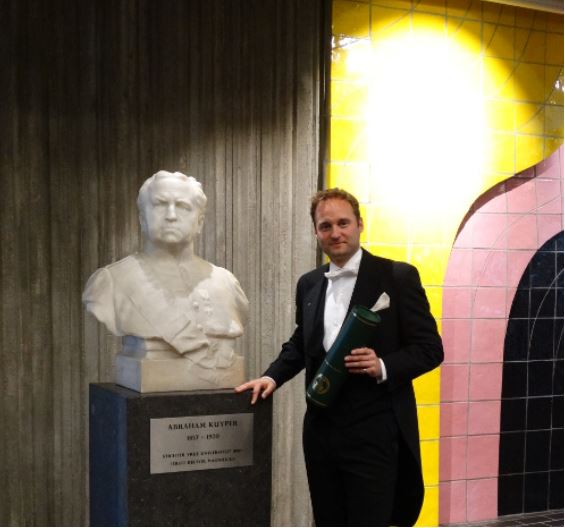
PhD thesis completed
December 2016
On the 9th of December 2016, Jelle Tichelaar successfully defended his PhD thesis about a context-based pharmacotherapy education. His thesis consisted of 10 peer reviewed articles. He argued that medical students should gain experience in prescribing in real clinical practice as early as possible during medical training. Also, teachers should be aware that giving medical students responsibility for real patients during clinical clerkships has a large impact on the development of students’ prescribing competencies. His entire PhD thesis can be downloaded here.

Are European medical graduates competent prescribers?
November 2016
In collaboration with the EACPT, RECIPE has published the first study of essential competencies in prescribing among European medical students. In this international multicenter study, the researchers evaluated the essential knowledge, skills, and attitudes in clinical pharmacology and therapeutics (CPT) of 895 final-year medical students across Europe. In a cross-sectional design, 26 medical schools from 17 European countries were asked to administer a standardized assessment and questionnaire to 50 final-year students. Although there were differences between schools, results showed an overall lack of essential prescribing competencies among final-year students in Europe. Students had a poor knowledge of drug interactions and contraindications, and chose inappropriate therapies for common diseases or made prescribing errors. These important findings results suggest that undergraduate teaching in CPT is inadequate in many European schools, leading to incompetent prescribers and potentially unsafe patient care. The manuscript can be accessed here.

Students and doctors are unaware of the cost of drugs they frequently prescribe
November 2016
RECIPE published a new study to gain insight into the attitude and knowledge of medication costs of medical students and doctors in daily practice. This study was a cross-sectional electronic survey among medical students and doctors. Attitude to costs was evaluated using a cost-consciousness scale. In open questions, the participants estimated the cost of commonly prescribed drugs. Overall, a reasonable cost-consciousness was found. Estimated drug costs were often not correct. The price of generic drugs was frequently overestimated and that of proprietary drugs was underestimated. While doctors and students considered it important to be aware of the cost of drugs, this attitude is not reflected in their ability to estimate the cost of frequently prescribed drugs. Cost awareness is important in therapeutic reasoning and cost-effective prescribing. Both should be better addressed in pharmacotherapy education. The manuscript can be freely accessed here.
